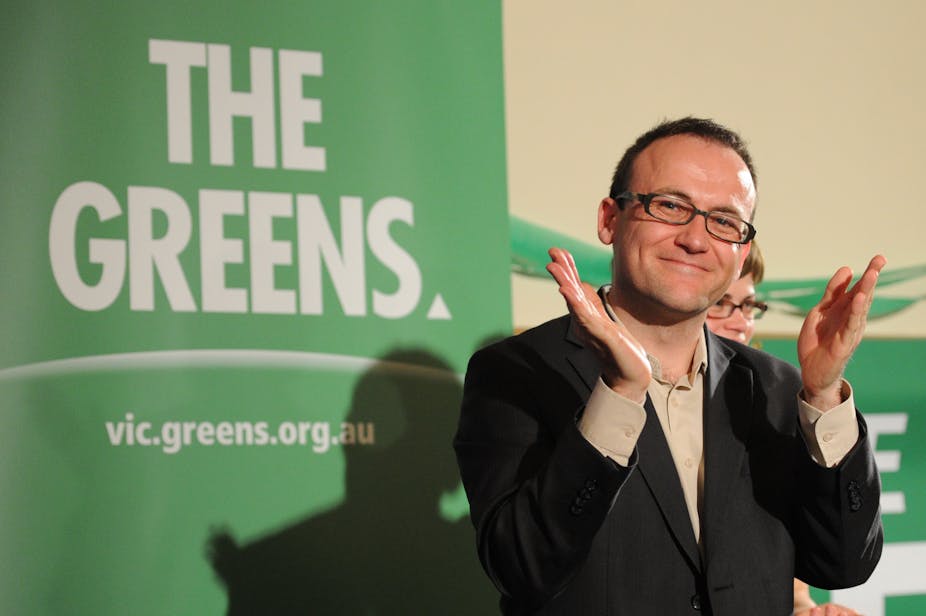Adam Bandt is the first Australian Greens MP to win a seat in the House of Representatives at a federal election.
And while the seat of Melbourne, which takes in the inner suburbs and CBD of the nation’s second largest city, is often caricatured as being the home of fixie-riding latte-swilling hipsters, there’s far more to the area than merely the cliches.
Melbourne is home to the nation’s densest and most effective cluster of medical research facilities, an area of concentrated research and innovation that stacks up handsomely with the world’s best.
A lynchpin of this rapidly evolving medical and life sciences hub is the Walter and Eliza Hall Institute, or WEHI as it is often known.
WEHI director Doug Hilton sat down with Bandt last week to talk medical science and find out where the Greens, often portrayed as “anti-science” and “anti-growth” stand on a field of research - and an industry - that promises to benefit Australia and Australians at every level if properly nurtured and supported.
Click here for the full transcript.
Doug Hilton: How do you see researchers, scientists and academics engaging with politics? Should we tread carefully for fear of offending people or should we be out there?
Adam Bandt: You have to engage without fear or favour. That campaign was one of the most effective campaigns I’ve ever seen. This is speaking as someone who’s been to many rallies and protests in their time and circulated a number of petitions. To have thousands of researchers in lab coats out in front of the state library, at the same time you had a very well thought out public strategy to get together the people doing the research and those benefiting from it, made a huge difference. I think it not only stopped the foreshadowed funding cuts but it opened a door for a public debate about the future of science and research in Australia.
That for me, as not only the local member, but as the Greens’ spokesperson, is critical. We need a national discussion about what the economy will look like once the mining bubble bursts and to my mind that is an economy and society where science and research play a key role. They’re already competitive strengths in places like Melbourne, and we need a plan to enshrine and grow that and I think that campaign opened the door for a national discussion.
Doug Hilton: What would be your vision for medical research and the community? What sort of challenges do you think we are facing?
Adam Bandt: I think we need a cross-partisan agreement about the security and levels of funding and a commitment that there will not be political interference in the grants process. They seem like fairly basic things, but the last few years have suggested any one of those things can be up for grabs at any particular time.
I would like to set a target of 3% of GDP on research and development, for example, and to start moving NHMRC funding to longer funding cycles. And having more of the funding available in larger and longer-term blocks, to allow for proven researchers to continue to excel and allow for career paths for people so they’re not permanently on two-year contracts.
We give $2 billion a year to mining and fossil fuel companies so that they can buy cheaper diesel fuel. If you go to the petrol station and fill up, we pay 38c a litre in excise. But a mining resource company they pay nothing, they get a diesel rebate. That’s $2 billion a year that’s going to companies that send 83% of their profits overseas, who can afford to buy petrol. Now isn’t $2 billion a year better spent in helping us get R&D investment to 3% of GDP or boosting health and medical research or on the Australian research council or CRC research budget?
Doug Hilton: That’s really interesting. I want to turn the discussion a little bit to something I’ve always seen as a bit of a dichotomy with the Greens. On the one hand I have a picture in my mind of a “typical” Green voter - an anti-science kaftan wearing hippy who thinks that aromatherapy is going to cure everything. And yet on the other hand the Greens are embracing science around climate change, and I think took a really sophisticated line around gene patents - making sure there’s incentives for innovation but also ensuring the fruits of innovation aren’t monopolised. Tell me how you walk that difficult path?
Adam Bandt: Taking a step back, one of the things about climate change that has always struck me as incredibly ironic goes to what you’re saying. If you think about the caricature 1940s and 1950s American scientist telling us about these amazing ways humans are able to dominate the natural environment and by acting on it we can achieve great things and create these amazing products.
Well turns out that’s all true, that humans can impact on the environment at an incredible scale and it’s called global warming and it’s outstanding that very scientific and political hypothesis has been proven right.

